Caswell & Co Ltd
 Caswell & Company Limited was founded in Chelsea, London in 1890.
Caswell & Company Limited was founded in Chelsea, London in 1890.Later, premises in St Michael’s Road, Kettering.
Moved to Princewood Road, Corby
Caswell Adhesives was acquired by F. Ball and Company Ltd in 2001.
Caswell Adhesives is the trading name of Caswell & Company Limited, 6 Princewood Road, Earlstrees Industrial Estate, Corby NN17 4AP
Website: www.caswell-adhesives.co.uk/
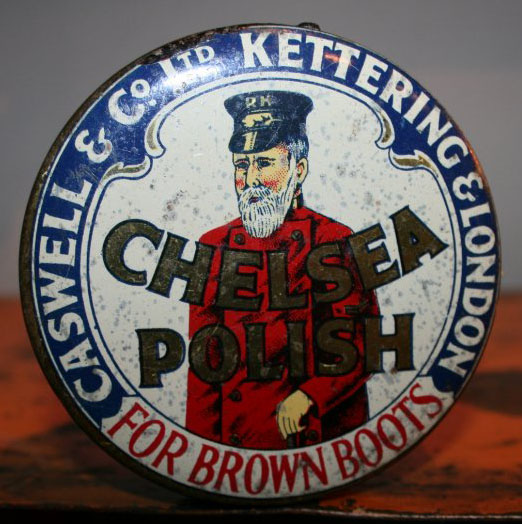
Photo: www.angellantiques.com
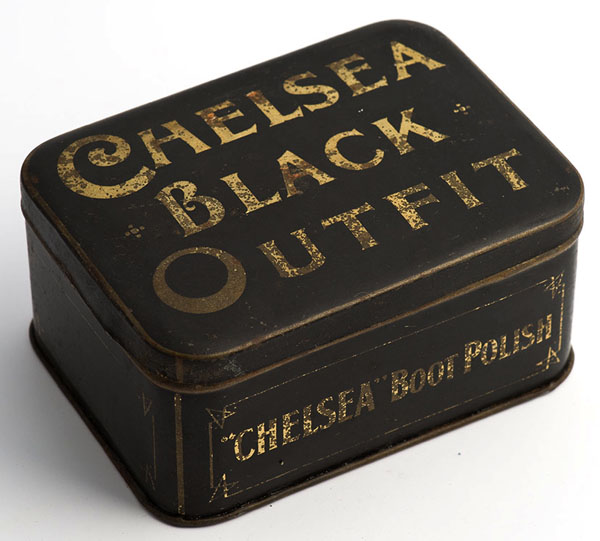
Photo: David Pratt
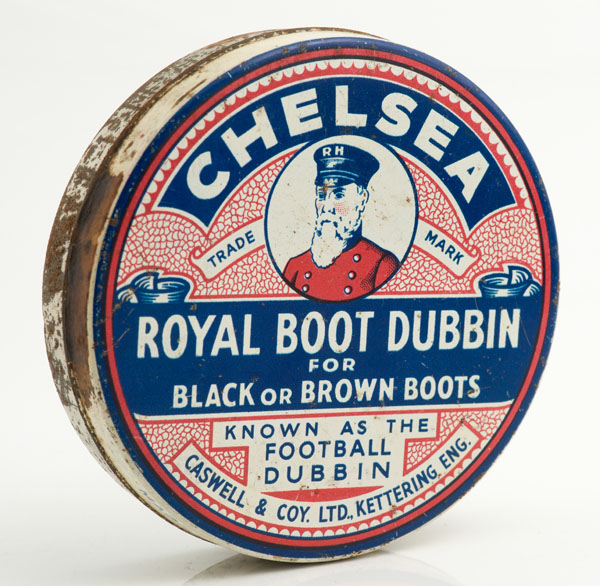
Photo: David Pratt
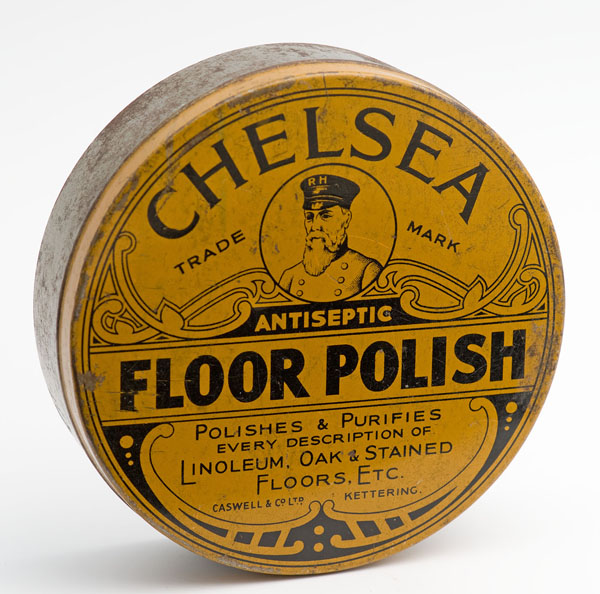
Photo: David Pratt
The label is printed on the reverse of the Caswell’s normal label “Honeysuckle Dubbin”.
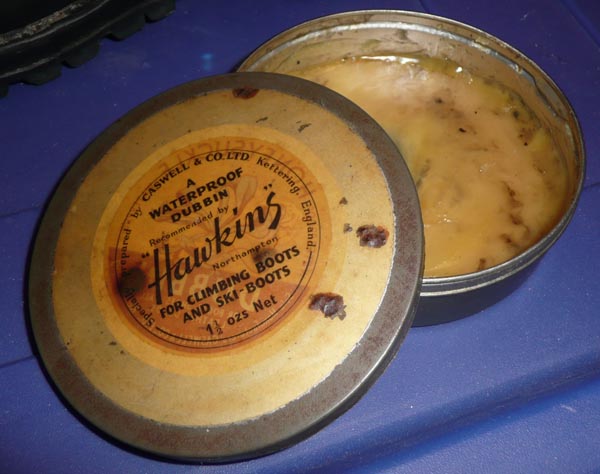
Photo: Alan Ball

“This new direction for the Corby site is intended to provide a safer and more responsible approach to the manufacture of adhesives and meet the demands of a changing market driven by legislation and motivated by a non-hazardous solution to their bonding requirements.
The new factory will pave the way for a safer and more environmentally friendly facility and provide a prosperous future for the 26 people still working for the company.”
The new factory, built on the razed Princewood Road site, opened in December 2008.
For over one hundred years, this Legendary British product has been used successfully as a leather treatment throughout the world. Chelsea Leather Food is a renowned, proven formula of natural oils and waxes. Highly recommended for use to preserve and extend the life of any good soccer shoe. It is a must for Kangaroo leather footwear care. Continued use of this unique leather dressing will assist in preserving the natural properties of the leather under extreme climatic conditions, and does not damage the stitching. Unlike other protective preparations, Chelsea Leather Food does not cause the leather to stretch or weaken, and does not prevent the leather from being polished.
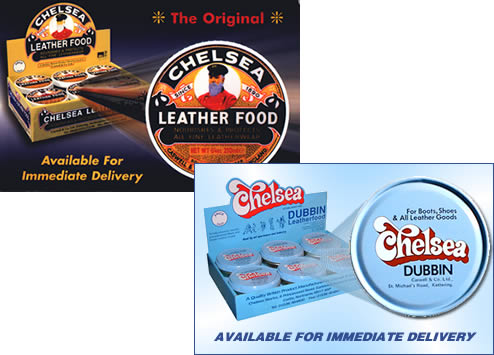
Purchasers of Chelsea’s ‘leatherfood’ will notice that new stocks carry the product name of “Dubbin Leatherfood” not plain “Leatherfood” as often illustrated. The explanation given by the company is that they decided not to incorporate the word ‘Dubbin’ at a time when rumours of damage to stitching were rife and so settled for their own invention – leatherfood. When Caswell’s tried to extend their marketing into Europe more recently, however, they found the name ‘Leatherfood’ was meaningless to most continentals whereas the word ‘dubbin’ was widely understood – hence the more recent change to ‘Dubbin Leatherfood’. Identical contents, simply a new name to assist marketing.
On the 8th October 1886, Francis Ball entered into partnership with William Henry Cowburn, ink manufacturer and established the business of ‘F. Ball & Co.’
The Company occupied premises in Lower Kennington Lane in south-east London where a range of products for the shoe and leather trade was developed. The partnership with William Cowburn was dissolved and in 1898 a new one formed with William Collis, an accountant.
Francis Ball died in 1904, his share of the business passing to his son, Walter James. A variety of new products were introduced during the next few years with a growing emphasis on the development of adhesives. The partnership with Mr Collis was terminated in 1915, Walter James becoming the sole owner.
The business continued to develop, with the management of the Company passing to Walter’s sons Francis Charles and Walter Ernest. In 1931 Walter James died and by 1933 the Kennington Lane site had been vacated for larger facilities in Tooting. 1936 saw the Company’s first venture into the flooring trade with the introduction of Stycco latex which was used to join widths of carpet together.
During the Second World War, the business was transferred from its London premises to an industrial site in Staffordshire, where suitable premises had been acquired.
In 1989, after a thorough search of the surrounding Leek area, an 8½ acre site was found 2½ miles away in Cheddleton, which remains the location of the Company today. The new site boasts a massive increase in distribution and warehousing capability.
Today, ownership of F. Ball and Co. Ltd. lies in the hands of Geoffrey W. Ball, the Chairman and great-grandson of the founder. A family-owned business with over 100 years experience, firmly committed to continual investment in product research, development and innovation for the future of the industry.
